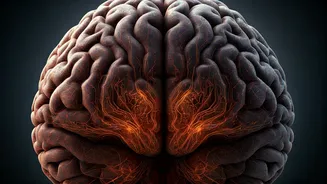Understanding Mental Health
Mental health encompasses emotional, psychological, and social well-being. It affects how we think, feel, and act. Mental health plays a crucial role in how we handle
stress, relate to others, and make choices. It’s also important to understand that mental health isn’t just the absence of illness; it's a state of well-being. This involves a positive sense of self, the ability to cope with stress, and the capacity to build and maintain healthy relationships. The presence of mental health challenges doesn’t mean an individual is fundamentally flawed, but rather, they need extra support. Focusing on mental health also means recognizing when to seek help and creating a supportive environment for those who may need it. Various factors, including genetics, life experiences, and environmental influences, contribute to a person's mental health.
Stress Management Techniques
Effectively managing stress is critical for good mental health. There are several techniques that can help. Practicing mindfulness and meditation allows individuals to center themselves and become aware of their thoughts and feelings without judgment. Another method is deep breathing exercises. This simple technique can quickly calm the nervous system and reduce feelings of anxiety. Regular physical activity, such as walking, jogging, or yoga, is also a powerful stress reliever, as it releases endorphins, the body's natural mood boosters. Ensuring adequate sleep is equally vital, as sleep deprivation can worsen stress. Creating a balanced lifestyle that incorporates these techniques can lead to significant improvements in stress levels, improving one's mental state and overall well-being.
Building Resilience Skills
Resilience is the ability to bounce back from adversity, and it’s a key component of mental well-being. Building resilience involves developing several skills. Cultivating a positive outlook, focusing on strengths, and practicing gratitude can help individuals manage challenges more effectively. Strong social support networks are also essential; having close friends and family members provides emotional security and a sense of belonging. Setting realistic goals and taking action, even small steps, towards those goals can boost confidence and a sense of control. Learning from past experiences and viewing challenges as opportunities for growth is another important aspect. By consistently practicing these skills, individuals can strengthen their resilience, making them better equipped to cope with life's inevitable ups and downs.
Seeking Professional Support
Knowing when and how to seek professional help is a vital aspect of maintaining good mental health. Recognizing the signs that indicate a need for help is crucial. These signs can include persistent sadness or anxiety, changes in sleep or eating patterns, difficulty concentrating, or a loss of interest in activities once enjoyed. If these symptoms interfere with daily life, it’s advisable to consult a mental health professional. Therapists and counselors provide support and guidance, using different therapeutic approaches to help individuals work through their challenges. Psychiatrists, who are medical doctors, can provide therapy and prescribe medication if needed. Reaching out for professional assistance is a sign of strength, not weakness. Accessing mental health services can significantly improve mental well-being.
Fostering Healthy Relationships
Healthy relationships are essential for mental well-being. They provide support, a sense of belonging, and opportunities for emotional growth. Building and maintaining healthy relationships involves several key elements. Effective communication is critical; expressing feelings and needs openly and honestly is crucial. Setting and respecting boundaries is also necessary, as this ensures that both individuals in the relationship feel comfortable and safe. Practicing empathy and understanding the perspectives of others is another key. Showing appreciation and expressing gratitude strengthens the bonds in the relationships. Nurturing social connections by spending time with loved ones, participating in community activities, and maintaining communication with friends and family helps to create a supportive environment. Healthy relationships are a source of strength.
Promoting Self-Care Practices
Self-care is a vital component of maintaining good mental health. It involves engaging in activities that nurture the mind, body, and spirit. Incorporating self-care into one's daily routine should involve taking breaks, and engaging in activities one finds enjoyable, such as reading, listening to music, or pursuing a hobby. Practicing good physical health habits, such as eating a balanced diet, exercising regularly, and getting enough sleep, is essential. Creating a peaceful environment by managing stressors and decluttering spaces can enhance one's sense of well-being. Connecting with nature by spending time outdoors can be incredibly beneficial for mental health. Regularly practicing these self-care practices can help individuals manage stress and improve their overall quality of life.













